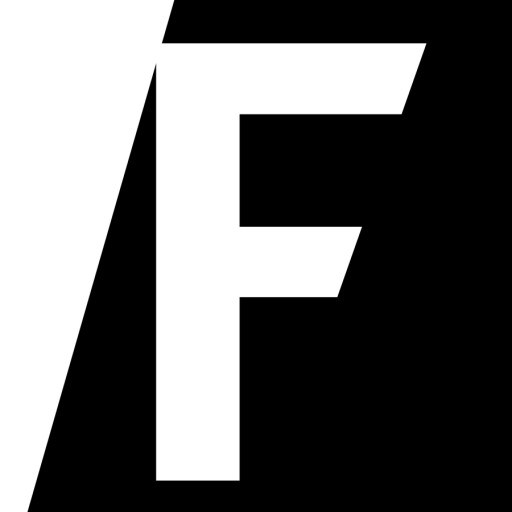Photos of university / #falmouthuni
The BA (Hons) Film and Television program at Falmouth University offers students a comprehensive and immersive experience in the dynamic world of moving images. Designed to develop both creative talent and technical expertise, this course equips aspiring filmmakers and television producers with the essential skills needed to succeed in the competitive media industry. Throughout the program, students explore a wide range of disciplines, including screenwriting, directing, producing, editing, cinematography, and post-production techniques, providing a well-rounded education in film and television production. The curriculum balances theoretical knowledge with practical application, encouraging students to translate their creative ideas into professionally produced content. Access to state-of-the-art facilities and industry-standard equipment allows learners to experiment and refine their craft in a realistic environment. The program fosters a collaborative learning atmosphere, where students work on numerous projects, from short films and television episodes to documentary films and experimental media artworks, developing their storytelling ability and technical skills simultaneously. Industry placements, masterclasses, and networking events are integral parts of the course, enabling students to gain real-world experience and establish valuable industry contacts. Qualified staff with extensive industry backgrounds mentor students throughout their studies, supporting their artistic development and helping them understand the commercial aspects of film and television production. The program emphasizes innovation, encouraging students to push artistic boundaries and explore new technologies such as virtual and augmented reality, digital editing, and emerging media forms. Graduates from the BA (Hons) Film and Television program leave with a strong portfolio, ready to enter various careers including filmmaking, television production, content creation, and media entrepreneurship. With a focus on employability and industry relevance, the course prepares students for the fast-changing landscape of visual storytelling, ensuring they are adaptable, skilled, and inspired to make impactful media that resonates with audiences worldwide.
Our passion is reflected both in the teaching and research track record of our academics, our industry connections and visiting speakers, and the quality of our film and television professionals. Crossing disciplinary areas such as cultural studies, sociology, journalism, English, philosophy and, of course, film and television studies, our MA offers academically-minded students comprehensive supervision and guidance for moving onto PhD research.
The course is divided into three semesters of 15 weeks. Each semester offers the fundamentals vital to every academic and practitioner, and elective choices so you can shape your own learning.
Study block 1
Foundation
The first semester consists of three core units, offering a diverse entry point to all aspects of the study of film and television, and the interrelationship of theory and practice:
Theorising Contemporary Film & Television Culture (Theory)
In this module you will explore the theoretical conceptualisations of film and television in the context of contemporary academic thought and popular discourse around the concept of digital culture. We will start from a point of questioning the multi-layered and contested effects of digital culture on film and television as discrete forms. You will consider the interrelationship and fusion between media in terms of production, distribution and exhibition examining the advent of new forms of representation and interaction. But we will also look at how traditional notion of film and television are being preserved and even being popular as a reaction to the effects of the digital. The module will also assess and interrogate the economic and technological developments of a more integrated and interactive media environment in terms of the cross-pollination of form and content, and socio-cultural effects on contemporary audiences.
Film & Television Industry Case Study (Theory/Practice)
In this module you will explore the industrial parameters of contemporary film and television based around the experience and expertise of current professionals. The module will utilise the School of Film & Television's many industry links to bring in guest speakers from the BBC, Channel 4, Sky, TwoFour Broadcast, Warp Films, Sheffield Doc Fest, Cornwall Film Festival, Doc Heads, BFI, Pinewood Studios, Dogbite and EngineHouse VFX. You will then have an opportunity to question these professionals about their respective sectors as a basis for a case study. Alternatively, you can investigate the sector/practitioner of your own choosing, with tutor support. The module will also contain workshops on the fundamentals of creative industry research and methodology. The module is designed so that you learn both the challenges and values of networking, and researching specific job roles and industry backgrounds in order to effectively plot your own career trajectory.
Creative Practices (Practice)
This module will engage you in the production workflow, focusing on how creative, professional and technical roles shape a final film or television project. Your weekly seminars and workshops will guide you through pre-production, production and post-production processes, enabling you to devise, develop and produce a short filmed project as part of a small crew of four to six students. You will, therefore, develop your technical skills and production practices in order to devise and deploy modes of creative practice which may include, but are not limited to, research and development, screenwriting, production management, producing, directing, cinematography, lighting, editing and the recording and design of sound.
Study block 2
Specialisms
The second semester gives you the opportunity to specialise, choosing from a ranging of theory, practice or combination modules. Assessment of combination modules is either through an academic essay or a practice project. Potential optional modules include:
- Cultural Studies to Digital Sociology (Theory/Practice)
- Screen Futures (Theory/Practice)
- Globalisation in Film & Television (Theory/Practice)
- Factual Film & Television (Theory/Practice)
- Screenwriting for Film & Television (Theory/Practice)
- Work Placement (Theory/Practice)
Study block 3
Expertise
Depending on your chosen specialism, in the third semester you'll produce either:
- Dissertation (Theory)
- Film & Production Portfolio (Theory/Practice)
- Conceptual Project (Theory/Practice)
Requirements
- We welcome applications from those with relevant equivalent Level 6 qualifications, or relevant equivalent experience, and a demonstrable interest in their subject.
- We also welcome applications from prospective students who do not necessarily hold conventional higher education entry qualifications. This process is called Accreditation of Prior Learning (APL). Prior learning includes both formal or 'certified' learning (such as training courses not run by universities or colleges) and informal or 'experiential' learning (gained as a result of work experience or self-study). This experience should be current (gained within the last five years) and should be equivalent to the learning outcomes of our minimum entry qualifications. Please see our APL Policy and Procedure under Admissions on our Student Regulations page
- APEL applicants using experience to apply should note there is a £200 application fee for entry with advanced standing or with exemption from specific modules or credit.
- If English is not your first language, you'll need to demonstrate English language skills that are sufficiently developed for successful completion of your studies. We accept a range of recognised English language qualifications that are equivalent to the International English Language Testing System (IELTS) Academic minimum score of 6.5 overall, with a minimum of 6.0 in Reading, Writing, Speaking and Listening. International applicants who require a Tier 4 student visa to study in the UK, must take an approved Secure English Language Test (SELT) to fulfil government visa requirements, or have a recognised language test approved and vouched for by the University. Our Admissions team can help with any questions you may have about study visas or suitable language tests.
Scholarships
Scholarships for International Students
Through the award of scholarships we aim to support academic enrichment by encouraging diversity and excellence at Falmouth. In 2016 Falmouth University awarded £70,000 worth of international scholarships.
International Scholarships for 2017 will be announced on this page in November
The Film and Television program at Falmouth University offers students a comprehensive education in the art and craft of filmmaking, focusing on both practical skills and theoretical understanding. The course is designed to equip students with the essential knowledge needed to succeed in a highly competitive industry. Throughout the program, students engage in hands-on projects, including directing, screenwriting, cinematography, editing, and producing, allowing them to develop a well-rounded skill set tailored for various roles within the film and television sectors. The curriculum emphasizes storytelling, visual composition, and sound design, fostering creativity and technical proficiency. Students also learn about industry standards, film history, and contemporary media trends, ensuring they have a solid contextual foundation. The program encourages collaborative working, simulating real-world production environments, and often involves partnerships with industry professionals, offering insights and networking opportunities. State-of-the-art facilities and equipment at Falmouth provide students with access to professional-grade resources, including editing suites, cameras, and sound recording studios. The course aims to prepare graduates for diverse careers such as film directing, television production, screenwriting, cinematography, and post-production. Additionally, students have opportunities to showcase their work at festivals, exhibitions, and online platforms, helping to build their portfolios and industry profiles. The teaching faculty comprises experienced industry practitioners and academic experts dedicated to mentoring students and fostering innovative approaches to filmmaking. The program's location in Cornwall offers a unique creative environment, inspiring diverse storytelling and community engagement. Upon completion, graduates are well-equipped to enter the creative industries or pursue further academic research and specialization in film and television studies. The program's duration, mode of study, and entry requirements are aligned with industry standards and support flexible learning pathways for students from various backgrounds.







